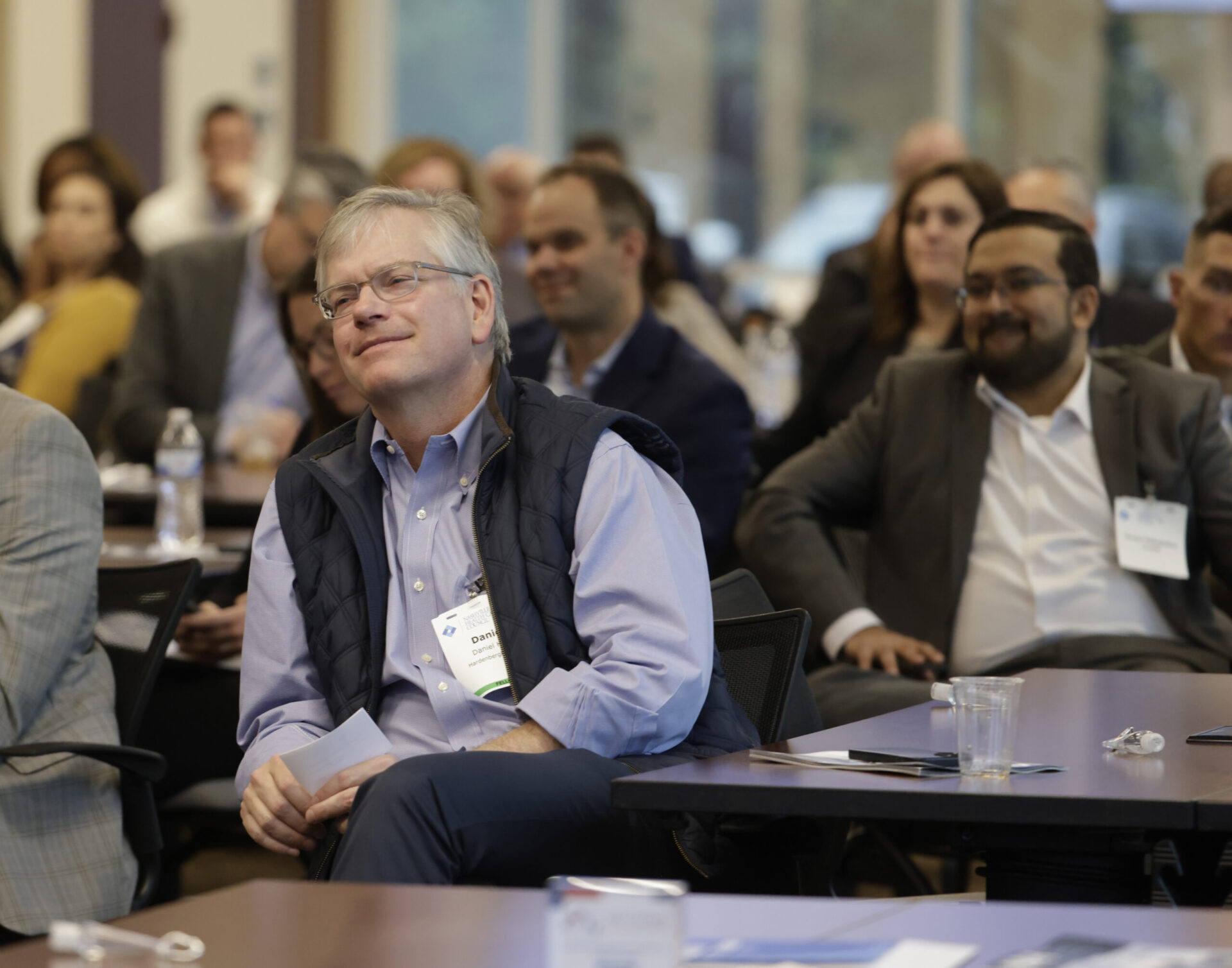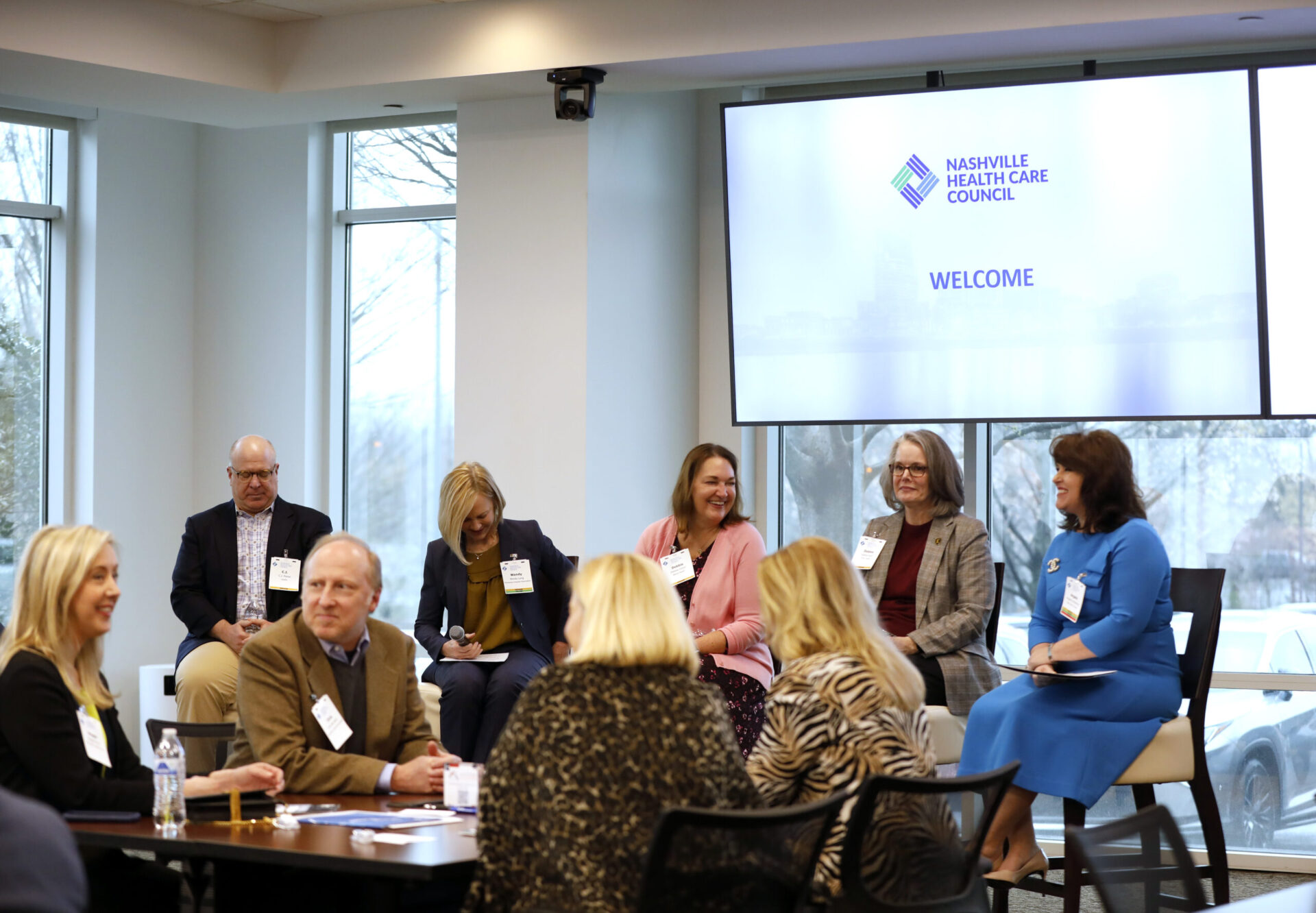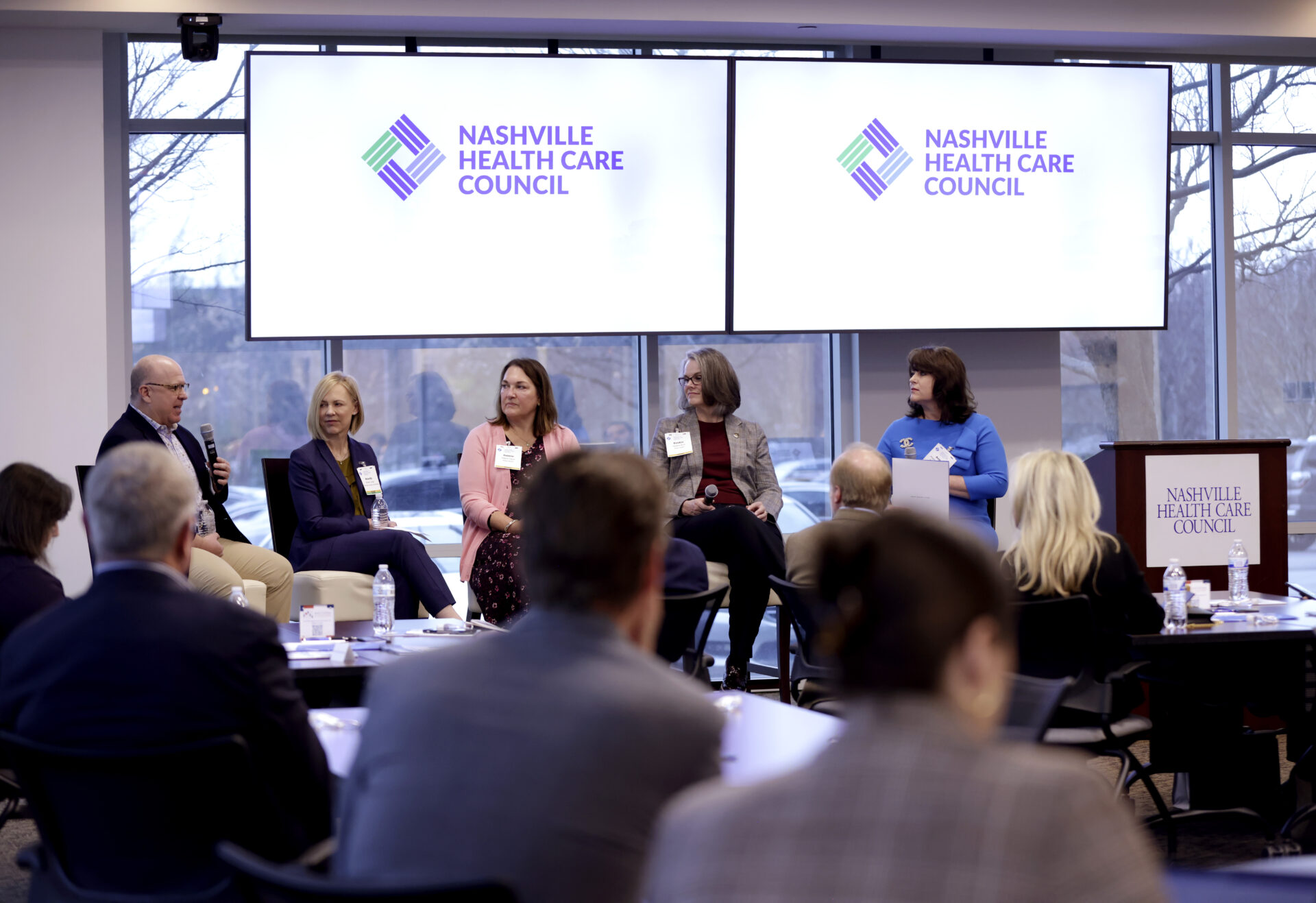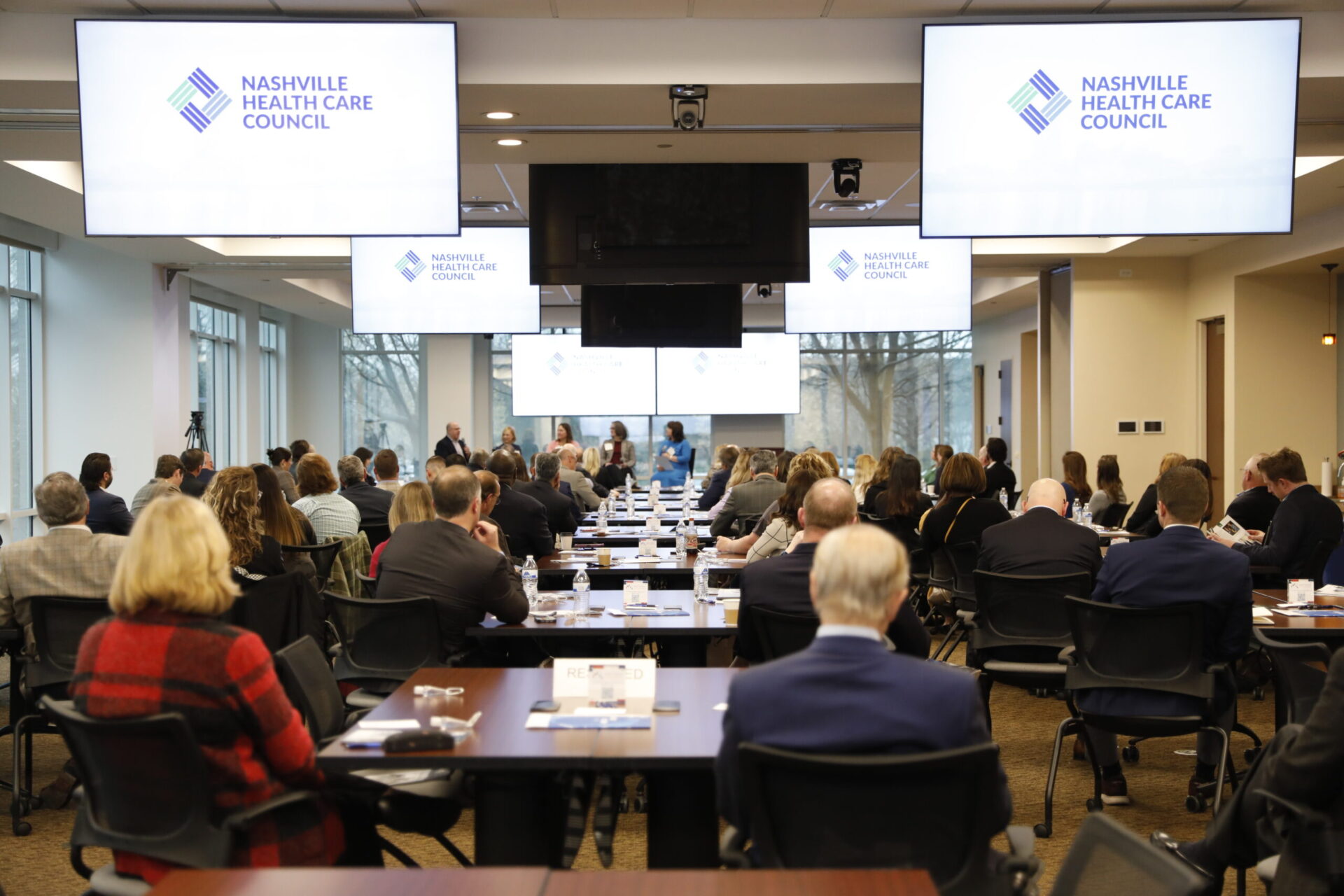Bolstering The Healthcare Workforce Begins by Taking Care of People
The Nashville Health Care Council’s latest panel addressed a question keeping many healthcare leaders awake at night: How do we combat the workforce shortage plaguing the nation? Panelists included Dr. Debbie Byrd, Dean of Gatton College of Pharmacy at East Tennessee State University; Debbie Dover, chief human resources officer at Ballad Health; CJ Floros, founder and chief operating officer at Laudio; and Wendy Long, president and chief executive officer of the Tennessee Hospital Association. The conversation was moderated by Angela Humphreys, healthcare practice group chair and healthcare private equity group co-chair at Bass, Berry & Sims.
The U.S. will experience a shortage of 124,000 physicians, including 48,000 primary physicians, by 2034 according to the Association of American Medical Colleges. And while current registered nurse employment has increased 5% compared to 2019, nearly all growth has occurred outside of the hospital setting. Projections from the Bureau of Labor Statistics estimate U.S. healthcare organizations will need to fill 200,000 open nursing positions every year until 2030.
As the panel explored recruitment and retention strategies and partnerships that have garnered success, a common theme emerged: addressing the shortage begins with taking care of people. Panelists advise leaders to:
Think Long Term.
“On the academic side, the challenges we’re facing are accessibility and affordability. Because of the decline in birth rate, which has been linked to the 2008 recession, we’re going to see fewer college graduates entering the healthcare profession. We’re being more inclusive and starting earlier and earlier with recruitment, even going into middle schools to show students what healthcare careers look like and partnering with the Girl Scouts,” Byrd said. “Lawmakers can help by forgiving or reimbursing loans and offering funding that allows us to decrease tuition. From the health system side, we need more preceptors. We can fill the classroom, but providers have to accept students and help them achieve their clinical hours to get them through the pipeline.”
Listen to what employees need.
“We’re surveying our frontline for their input and also asking, ‘What else do you want to do?’ Based on their interests, we’ve started helping existing team members with career pathing, tuition and scholarships to help them grow their skills and careers,” Dover said. “Throughout the pandemic, we witnessed employees leaving because of childcare.” In addition to the two existing childcare centers, Ballad is making a multimillion-dollar investment to expand its daycare options across their region over the next several years.
“We’re surveying our frontline for their input and also asking, ‘What else do you want to do?’ Based on their interests, we’ve started helping existing team members with career pathing, tuition and scholarships to help them grow their skills and careers,” Dover said. “Throughout the pandemic, we witnessed employees leaving because of childcare.” In addition to the two existing childcare centers, Ballad is making a multimillion-dollar investment to expand its daycare options across their region over the next several years.


Cultivate a culture and environment that remind clinicians of their purpose.
“Most people in this profession are mission driven, and we have to create workdays that remind them why they made their career choices. That can be challenging across generations. We have Gen Z working alongside baby boomers who are driven by different things,” Long said. “A major issue here is determining how to maximize patient care hours. We need to reduce administrative tasks so clinicians can function at the top of their license. We’re hosting quarterly regional meetings with health system and nursing school leadership to identify best practices, share success stories and cultivate partnerships that can make this happen.”
Alignment throughout the organization is key.
“We have to take care of people correctly and consistently, and doing so will ensure better patient care and employees who want to come to work,” Floros said. “This requires a culture shift and behavior change from the c-suite to the frontline. This isn’t just a human resource problem – it’s everyone’s problem. We need alignment across the board to operationalize from the top down.”
Get insights like this and more by joining the Council’s upcoming events. Don’t forget early-bird registration for Nashville Healthcare Sessions is open to Council members until March 31! Register at this link or visit nashvillehealthcaresessions.com to view the conference schedule.


